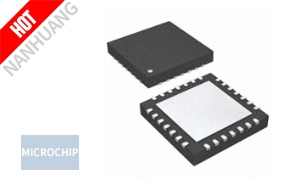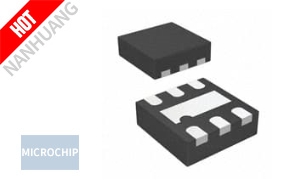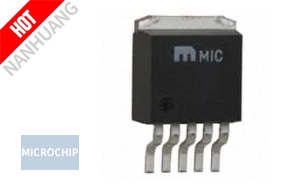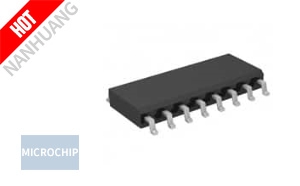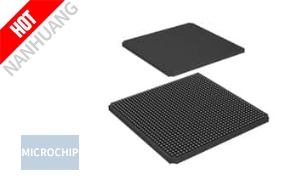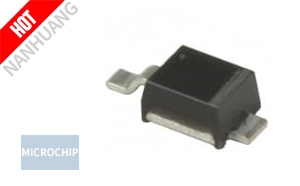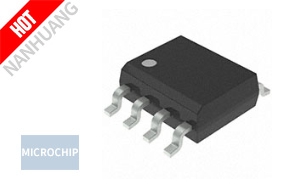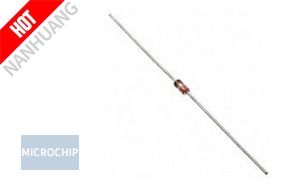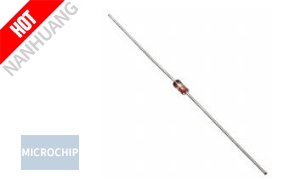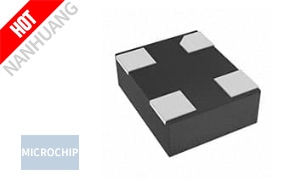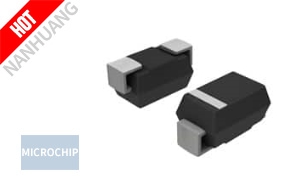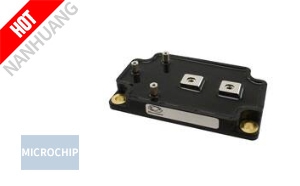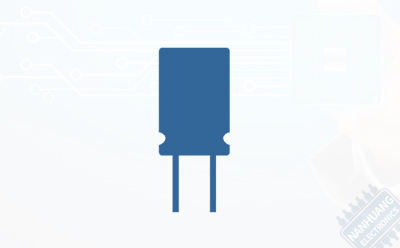
The continuous computational demands of Artificial Intelligence (AI) and Machine Learning (ML) workloads, cloud computing and data analytics deployed on traditional parallel attached memory have reached an efficiency plateau due to the limitations of increased memory channels on a processor. Microchip Technology Inc. (Nasdaq: MCHP) today announces the expansion of its serial-attached memory controller portfolio with the new SMC 2000 series of Compute Express Link™ (CXL™)-based Smart Memory Controllers that enable CPUs, GPUs and SoCs to utilize CXL interfaces to connect either DDR4 or DDR5 memory. This solution delivers more memory bandwidth per core, more memory capacity per core and lowers the overall Total Cost of Ownership (TCO) in the data center by allowing modern CPUs to optimize application workloads.
The low-latency SMC 2000 16×32G and SMC 2000 8×32G memory controllers are designed to CXL 1.1 and CXL 2.0 specifications, DDR4 and DDR5 JEDEC standards and support PCIe® 5.0 specification speeds. The SMC 2000 16×32G is the industry’s highest-capacity controller with 16 lanes operating at 32 GT/s and it supports two channels of DDR4-3200 or DDR5-4800, resulting in a significant reduction in the required number of host CPU or SoC pins per memory channel.
Typical CXL attached memory modules include 512 GB of memory or more, providing an effective mechanism to increase the memory bandwidth available to processing cores. This new paradigm shift provides data center operators the ability to deploy a broader range of ratios for memory to CPU cores depending on their actual application needs, resulting in improved memory utilization and lower TCO.
“Microchip is excited to introduce our first CXL-based serial memory controller device to the market,” said Pete Hazen, corporate vice president of Microchip’s Data Center Solutions business unit. “We identified CXL as a disruptive technology early on and we were integral to the standard’s definition. Microchip’s continued presence in the memory infrastructure market underscores our commitment to improving performance and efficiency for a broad range of SoC applications to support the increasing memory requirements of high-performance data center applications.”
“The CXL Consortium was founded with a vision to deliver to the industry an open standard that would accelerate next-generation data center performance,” said Siamak Tavallaei, president, CXL Consortium. “We’re pleased to see Microchip, a valuable contributor to the CXL Consortium, deliver a CXL solution enabling a new ecosystem for high-performance, heterogeneous computing.”
Microchip’s SMC 2000 CXL-based memory controllers employ an innovative design that delivers Reliability, Availability and Serviceability (RAS) features to transform solutions to the next level of efficiency and performance. Through CXL connectivity, the SMC 2000 external memory controller enables a CPU or SoC to utilize a broad set of media types with different cost, power and performance metrics without having to integrate a unique memory controller for each different type. For example, using an SMC 2000 controller with DDR4 memory, advanced CPUs that only directly support DDR5 can now also reuse DDR4 memory expansion. Dual signature authentication and Trusted Platform support, secure debug and secure firmware updates ensure that the SMC 2000 CXL-based controller family also meets all critical storage and enterprise application security needs.
Data center application workloads require future memory products that can deliver the same high-performance bandwidth, low latency and reliability of today’s parallel DDR-based memory products. The CXL platform is one of the biggest industry disruptions in recent years, bringing to market a new standard serial interface for CPUs to expand memory beyond the parallel DDR interface to provide the next level of efficiency and performance to the data center.
Development Tools
To support our customers in building leading-edge systems that are compliant with the CXL standard, the SMC 2000 comes with design-in collateral and our ChipLink diagnostic tool that provides extensive debug, diagnostics, configuration and analysis tools with an intuitive GUI.
Pricing and Availability
We will sample the SMC 2000 16×32G to select customers in Q3CY22.
All registered trademarks and other trademarks belong to their respective owners. For more details, please visit Microchip official site.
- IC MCU 8BIT 14KB FLASH 28QFN
- IC REG LINEAR 2.8V 150MA 6MLF
- IC REG LINEAR 5V 400MA TO263-5
- TVS DIODE 12VWM 24VC 16SO
- IC FPGA 712 I/O 1152FBGA
- RF DIODE PIN 100V 2.5W DO216
- IC EEPROM 1KBIT SPI 2MHZ 8SOIC
- DIODE ZENER 36V 500MW DO35
- VOLTAGE REGULATOR
- MEMS OSC XO 100.0000MHZ CMOS SMD
- TVS DIODE 16VWM 26VC SMBJ
- MOSFET N-CH 1200V 116A SP6
- Microchip announces a comprehensive ecosystem around AUTOSAR-ready dsPIC33C Digital Signal Controlle
- Microchip announces the AVR-IoT Cellular Mini Development Board based on the AVR128DB48 8-bit microc
- Microchip Technology announces the expansion of its serial-attached memory controller portfolio
- Microchip announces expanded its portfolio of MPU System-on-Modules (SOMs) with the SAM9X60D1G-SOM A
- Microchip Technology announces the PIC32CM JH microcontroller (MCU)
- Microchip Unveils Industry’s First Terabit-Scale Secure Ethernet PHY Family
- Microchip Technology is introducing its first Arm Cortex®-M4F-based PIC microcontroller (MCU) famil
- Microchip announces the LAN8840 and LAN8841 Gigabit Ethernet transceiver devices
- Microchip announces the introduction of its first commercial-off-the-shelf (COTS) rad-tolerant power
- Microchip Technology announces a new comprehensive hybrid power drive module
- Microchip announces expanded its secure authentication device portfolio with six new products in its
- Microchip Technology announces its MPLAB® SiC Power Simulator


